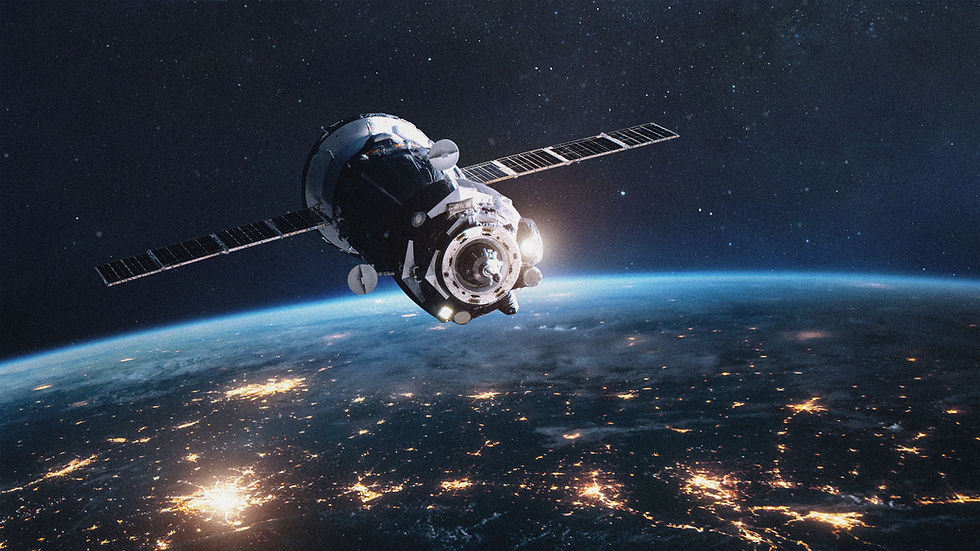Why International Astronautic Collaboration is the Crux of Astronomical Strides
- Amanda Grodman

- Nov 23, 2022
- 3 min read
Updated: Jun 2, 2023
Large aeronautical corporations, including NASA, SpaceX, and affiliated industries are often thought of as the diverse pioneers of interplanetary discoveries. Yet, in hearing about significant space-concerning discoveries, the media tends to neglect other global corporations that are also contributing to the general welfare of space. We shouldn’t dismiss recent strides made by companies based in the Western Hemisphere, as they truly embody contemporary enthusiasm to go to space, although several organizations in other regions have made notable advances to the aerospace and aeronautics industry that should also be recognized. As Neil deGrasse Tyson once said, “We are biologically connected to every other living thing in the world. We are chemically connected to all molecules on Earth. And we are atomically connected to all atoms in the universe.” So why view space as a territorial competition rather than a collective mission?

The twentieth century was pivotal in forging long-lasting cooperation by constructing imaginative, spatial projects, primarily during the Space Race. With Russia pioneering the construction of a space station in the 1970s, orbiting regions saw a slew of European astro/cosmonauts enter the field, including individuals from Germany, Russia, and France. With ongoing political and social disagreements from previous world wars, spatial developments were ultimately propelled in competitions between global engineers, industry experts, and space agencies. In the 1990s, space collaboration was propelled by the construction of the International Space Station (ISS) following the introduction of Russian-based stations. Although constructed by NASA, upon a preliminary launch of a Russian control module component in 1998, the ISS would serve to connect global hardware from the United States, Russia, the European Space Agency, Japan, and other organizations throughout the next ten years. Since this time, the ISS has collated fourteen countries together in one, continuously-operating, industrial collaboration that seeks to quantify human activity in space (in a more cooperative fashion than seen in the previous century). However, this space station won’t last forever–expecting to retire within the next ten years due to hardware safety concerns–meaning that additional room will be made for other agencies looking to contribute and make novel developments on a spatial scale. Hopefully, more collaborative space stations, particularly in developing countries, will emerge in future years.

Recent developments are especially promising in showing how international cooperation can promote spatial developments (also click here to see more astronautical news). China is currently working on completing the Tiangong space station, which will further contribute to humans in orbit besides the ISS. Orbex, a United Kingdom-based company, plans to launch a rocket in 2023 in Scotland, which will grow Scotland’s space economy and also increase regional contributions to space. In addition, India launched its first moon mission in 2008 (making 2022 its 14th anniversary of doing so), showing how the Space Race wasn’t the sole determining factor of interplanetary presence and many more countries may be strengthening their agencies in future years. Our big takeaway? Space legislation, spatial discoveries, and space as a whole shouldn’t be limited to just the United States–and we have some insight about future international developments.

In this episode of “Let’s Go to Space: BLUESKY Learning,” Episode 83: A German View of Space, we’re joined with Leeloo Schindelhauer, a current aerospace engineering student at the Technical University of Munich in Germany. Leeloo brings a unique perspective to the space realm as someone who has been exposed to engineering and aeronautics since her beginning of high school. In addition, she shares her current predictions of the German Space Agency’s developments, along with her aspirations as a witness to such strides. Leeloo’s insight and maturity shows that continuous grit and determination can bring you far in your desired career–regardless of your geographic placement. Learn more about Leeloo Schindelhauer, along with current German-based aeronautical developments, or visit our other weekly podcasts to hear from other speakers, by clicking the link above. Also make sure to check out our website to learn more about becoming a member of the Aerospace and Innovation Academy, where you can join us in our quest to go to space.




Comments